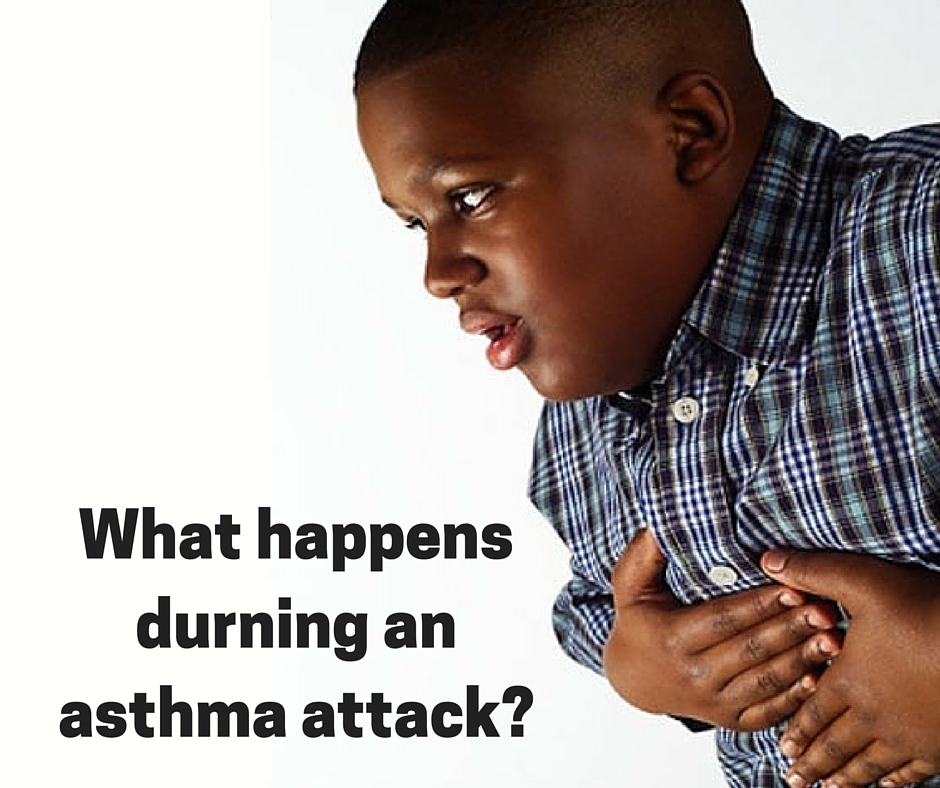
It’s happening again. Your coughing won’t stop. You can’t talk, and your breathing is getting more rapid by the minute. You could be having an asthma attack.
Asthma attacks are a sudden burst of severe asthma symptoms, which happen when the muscles around your bronchospasm, or airways, tighten up.
When you have an asthma attack, the lining of your airways swell up. The inflammation causes a thick mucus to form.
Asthma attacks can range in severity, but they almost always interfere with normal daily activities.
Here are some symptoms of an asthma attack:
- Serious wheezing when you breathe in and out
- Chronic coughing that won’t stop
- Rapid or heavy breathing
- Tightness of your chest or chest pressure
- Retracting (or tightening) neck and chest muscles
- Difficulty speaking
- Anxiety or panic attack
- Pale face
- Sweats
- Your lips or fingernails turn blue.
- The symptoms won’t subside even with your asthma medication
Sometimes, asthma sufferers will go for years without having an asthma attack, or even showing any symptoms of asthma. Then, the attack comes from coming into contact with asthma triggers – mold, pollen, dust, cockroaches, household chemicals. An attack can also come from overdoing it when you exercise.
If you suffer from asthma and have any of the above symptoms, call 911.
There are mild asthma attacks and severe asthma attacks, and the good news is that mild attacks are more common than severe ones.
When a mild asthma attack happens, your airways open up and the swelling goes down after a few minutes or a few hours.
Severe asthma attacks, though they are less common, will last much longer and will require immediate medical attention.
If you suffer from asthma, you need to be able to recognize mild symptoms of an asthma attack so you can keep it under control and it doesn’t lead to a more severe attack.
What are the early signs of an asthma attack?
We’ve told you what to look for when you’re having an asthma attack, but there are also early signs and symptoms that could indicate an asthma attack is coming.
These early symptoms are less obstructive to your daily activities, and therefore easier to miss or dismiss. If you recognize the early symptoms, however, you can stop your asthma attack from setting in – or at least try to avoid a severe attack.
The following are some early warning signs of an impending asthma attack:
- Frequent coughing, especially when you’re sleeping
- Lower peak flow meter readings from your device that measures lung capacity. It’s important to have this device if you suffer from asthma.
- Shortness of breath or the sensation that you’re losing your breath
- Weakness or fatigue when you exercise
- Wheezing or coughing while you exercise or right after your exercise
- General fatigue
- Mood swings
- Changes in lung function as determined by your peak flow meter
- Sneezing
- Runny nose
- Nasal congestion
- Sore throat and other cold symptoms
- Headache
- Insomnia or trouble staying asleep after you fall asleep
Recognizing early signs of an asthma attack is important, and it’s equally important to see a doctor if you’re having any of those symptoms. Stop by Urgent Care or call us today.
